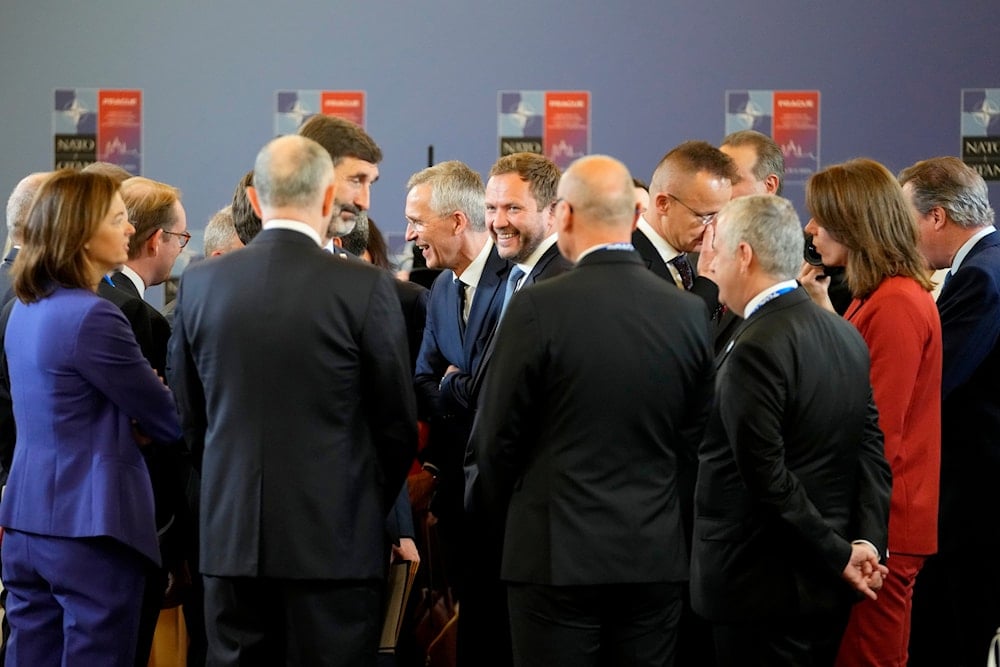US seeks EU sanctions guarantee to back $50bln Ukraine loans
Washington requires Russian assets held in Europe to remain frozen to secure loans for Kiev.
-

NATO Secretary General Jens Stoltenberg, center, and Estonia's Foreign Minister Margus Tsahkna, center right, greet ministers during a meeting of NATO foreign ministers at the Czernin Palace, in Prague, on May 31, 2024. (AP)
The US is prepared to spearhead a $50 billion loan to Ukraine, to be reimbursed through proceeds from frozen Russian assets, contingent upon the EU's ability to extend sanctions against Moscow indefinitely, as outlined in a leaked discussion paper obtained by the Financial Times.
Washington needs the EU to extend the bloc’s sanctions on Russian state assets, which automatically expire every six months unless unanimously renewed, until the end of the conflict to "safeguard against potential repayment liabilities." However, any changes would require the approval of EU leaders, including Hungary’s Viktor Orban, who vetoed rights over sanctions decisions.
The obtained leaked discussion paper includes the US proposal, which is to be discussed during a virtual meeting of the bloc's finance ministers on Wednesday to discuss raising money for Kiev.
€3 billion in annual profits
During the summit of G7 leaders in Italy next week, the primary option being considered involves a US initiative to provide loans to Ukraine, potentially in collaboration with other G7 nations, aiming to approximate the anticipated 'windfall profits' derived from the vast amount of Russia's frozen assets held in Western countries, which diplomats estimate could amount to as much as $50 billion.
However, Washington views any potential loan as "conditional" on the EU earmarking profits from the assets for repayments and ensuring that "Russian central bank assets held in the EU remain immobilized until Russia agrees to compensate for the damage inflicted on Ukraine," as outlined in the paper.
This commitment is crucial since Russia's assets in Belgium's central security depository Euroclear generate about €3 billion in annual profits. The US could be liable if profits fall short of the required repayments or if the EU does not agree to extend sanctions. Therefore, the US is exploring ways to share this risk with other G7 partners.
Some EU governments are cautious about the financial implications of such assurances. "The Americans are probably going to have to accept that the EU cannot provide a cast-iron guarantee on losses," said a person briefed on the negotiations.
Another option involves the EU and other G7 nations issuing bilateral loans to Ukraine, secured by profits from Russian assets frozen within their respective jurisdictions.
This approach would potentially necessitate the EU to use "headroom" within its common budget, which would also require unanimous agreement. "The time needed to put in place such guarantees, along with the legal and operational constraints, would not facilitate a swift implementation of this option," the paper concludes.

 3 Min Read
3 Min Read









